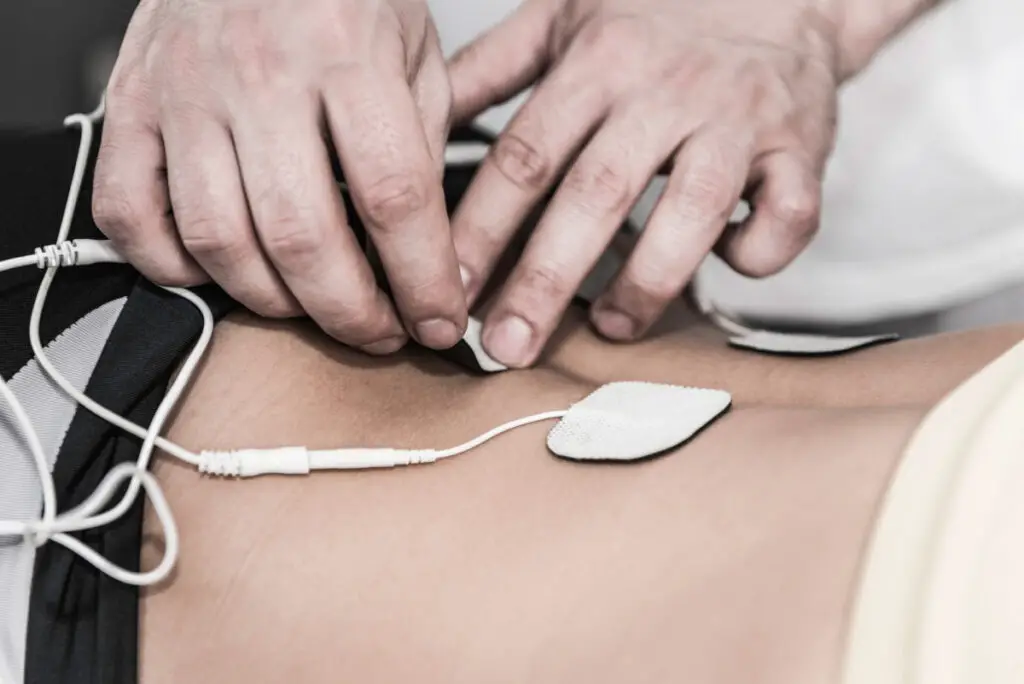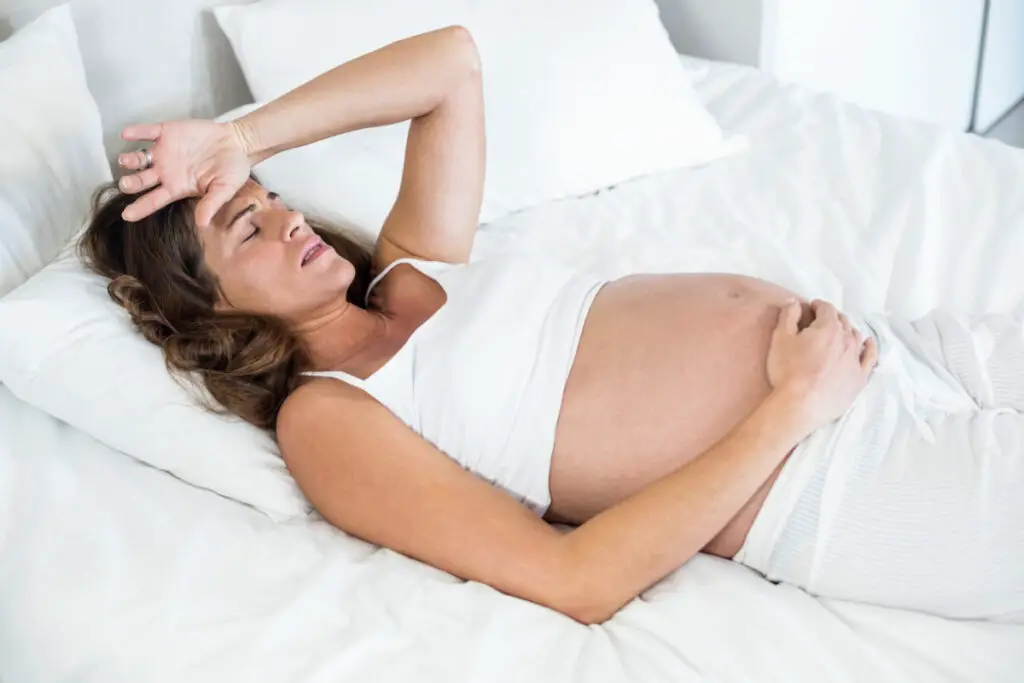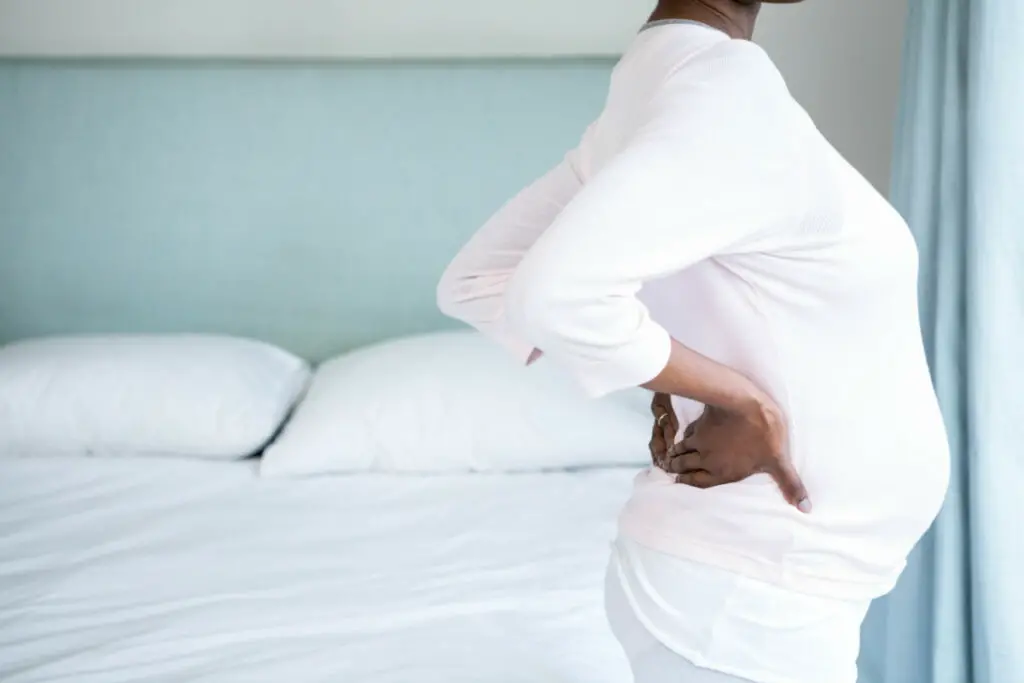Pregnancy brings about a lot of temporary changes to a woman’s body. Sometimes, these changes could include aches and pains that you have never felt before.
The body can become sore because of the extra weight that you are carrying. Pain management is always a challenge when there’s a fragile soon-to-be human in there, too!
Can you use a TENS unit while pregnant? The answer here is that there is disagreement about this. Some say TENS is safe to use in some circumstances, such as Oxford Health in the UK. But others say you should only use it during labor pain and after, as it simply hasn’t been tested below 37 weeks.
Regardless, always talk to your doctor first!
Let’s learn more about the TENS unit and how you can use it while pregnant.
Can You Use A TENS Unit While Pregnant?
There are many ways to relieve pain. However, while you are pregnant, the abundance-of-caution mindset greatly limits your options. For example, you should avoid drinking over-the-counter medication because it can be bad for your baby. This may be why pregnant women look for alternative ways to help with their pain.
A TENS unit is a device that’s known to help deal with pain. It produces an electrical current that could affect the nerves to help numb the pain. It can be useful for pregnant women in some circumstances, but it needs to be used in such a way that it does not induce any contractions.
There are many ways to relieve pain. However, while you are pregnant, the abundance-of-caution mindset greatly limits your options.
The problem is that TENS units have not really been studied for use during pregnancy, and therefore the standard advice is to avoid use, particularly in areas like the belly where the stimulation could induce contractions.
Is a TENS unit safe during pregnancy?
Most advice says that pregnant women of less than 37 weeks shouldn’t get relief from using TENS units for their back pain, leg pain, or any other pain and discomfort that they are currently having.
Here are a few sources that take that position.
Basically, all argue that TENS has not been studied for use prior to 37 weeks, and therefore should not be used.
But notably, Oxford Health in the UK does not specifically make that recommendation in this pamphlet on TENS unit use during pregnancy. And Oxford Health is much more of an authority than any of those sites!
The pamphlet states “If applied correctly, TENS can be used safely without any side effects to your baby. TENS should not be used over certain areas of the body which may induce labour contractions.”
Bottom line: talk to your doctor. Use of a TENS unit during pregnancy before 37 weeks is a balance of risk and benefit, and much depends on where it’s being used.
Using A TENS Unit During Labor
As I’ve mentioned, the only time there is agreement that a pregnant woman can use the TENS unit is during labor. During labor, a pregnant woman can feel all sorts of pain from different areas of the body due to her contractions.
With the use of the TENS unit, the medical practitioner will place the pads on the lower back to help relieve the pain felt during contractions. The TENS unit can be programmed to produce pulsing or continuous electrical current to help with the nerves that are on the lower back.
The TENS unit can help alleviate some of the pain that could be felt by the pregnant woman. Similarly, the TENS unit can also be used as a distraction from the contractions so that the pregnant woman doesn’t feel or focus on the pain brought about by the contractions.
Benefits Of Using TENS Unit During Labor

Using a TENS unit during labor is an optional choice for the mother. There are a few benefits to using it during labor and they are as follows:
Drug-free Option
The first benefit is that there are no drugs or chemicals that are introduced to the body with this method of pain management. TENS therapy uses electric current to stimulate the nerves so that pain is minimized.
The TENS unit pads are usually placed on the lower or upper back area where the pain is usually felt during contractions or labor. With electrical stimulation, you can get relief because it works on the nerves in the area.
Natural Endorphins Are Released
Many pregnant women and their medical practitioners decide to use the TENS unit early in labor. With that, the body is instructed to release the natural endorphins, which are the body’s natural painkillers. Wit
h the endorphins released, there would be less pain felt by the body.
Can Start At Home
No products found. are available for you to buy for yourself and use at home. Those who are going into labor can start using them early during labor. This greatly helps with pain as the endorphins are already being released early.
There are also units where you can control the electrical current with just a push of a button. The pregnant mother in labor can push the button during her contractions to help make her feel that she is in control of her labor.
But again, talk to your doctor first!
No products found.
Portability
TENS units are small and portable. That means the pregnant mom in labor doesn’t need to be kept in a single position just to use it. This is great during labor so that the pregnant woman can freely move into more comfortable positions.
The pads of the TENS units are sticky enough so they won’t easily fall off even if the mother moves. Additionally, if the sticky pads get pulled out, they could still be reapplied multiple times.
Dealing With Body Pain During Pregnancy
Since you can only use the TENS unit during your labor, it would be best to know how to deal with body pain safely during your pregnancy.
One of the tips that medical practitioners give is to stay active and to make sure that your weight gain during pregnancy isn’t too much. Weight gain is normal during pregnancy because you are growing a baby but sometimes some women may gain too much.
Usually, about 35 lbs gain is recommended when pregnant. This is to help avoid the pain that could be due to weight gain.
If you are already experiencing discomfort, moderate exercise like walking could work and help reduce back pain. Medication such as acetaminophen is usually safe during pregnancy but should still be cleared out by your healthcare provider.
There are also products such as a ”belly that can help with the weight of your growing belly. Wearing it can help relieve pelvic and back pain. Additionally, it can also help the abdominal wall and the muscles support the extra weight.
Pregnancy And Pain
Every woman experiences pregnancy differently. Some go through them (relatively) effortlessly, while others aren’t that lucky and have a hard time with their pregnancy.
One of the things that many women may complain about during their pregnancy is pain. There are certain aches and pains that you can feel during your pregnancy that could make you feel incredibly uncomfortable.
Such aches and pains would include the following:
Headaches

Women who are pregnant can experience frequent headaches. They can also be more common than you think. Unlike before, when you could easily take medication for headaches, it would be best to ask your healthcare provider for safe medicines.
Alternatively, you can also ask them for other ways how to relieve headaches because drinking medication could harm the unborn child.
Sometimes, the headaches could also be a sign of high blood pressure. It would be best to consult with your medical practitioner right away if your headaches don’t easily go away or worsen.
Abdominal Pain
Abdominal pain, especially that which is felt on your belly or groin could happen when you reach 18 to 24 weeks of pregnancy. Whenever you feel this kind of pain, it would be best to slowly change your position or move at a slower pace.
The pain could last for short periods and will typically go away. If it doesn’t and if you are constantly feeling this pain, consult with your healthcare provider because you could be having contractions.
If the pain also includes fever or bleeding, consult with your physician right away. There might be something serious going on. There could be a possibility of preterm labor, appendicitis, or gallbladder disease.
Tingling And Numbness
Due to the growing size of your uterus, some nerves on your legs could be pressed or pressured. This could lead you to feel numbness and tingling in your legs. These usually numb senstations disappear a few weeks or months after giving birth.
Sometimes your hands and arms can also feel this when you wake up in the morning. This may feel uncomfortable but it could also go away after giving birth.
Backache

Your back is another area of the body that can be strained when pregnant. That is because you are carrying a heavy weight in your belly and your back has to compensate for the additional weight.
Leg Aches
Like your back, your legs could also be pressured due to the additional weight. Additionally, the hormones you produce could also cause the ligaments to loosen up in preparation for childbirth.
Usually, you’ll have leg aches and cramps during the last months of your pregnancy when your baby is already big enough to be born.
Labor Pain
Labor pain is one of the worst pains that pregnant women feel. It happens when you are about to give birth because of uterus contractions. It can also be caused by the pressure on your cervix.
The pain can be felt in the back, groin, and abdomen as well. Some women may also feel pain in their thighs while they are in labor.





